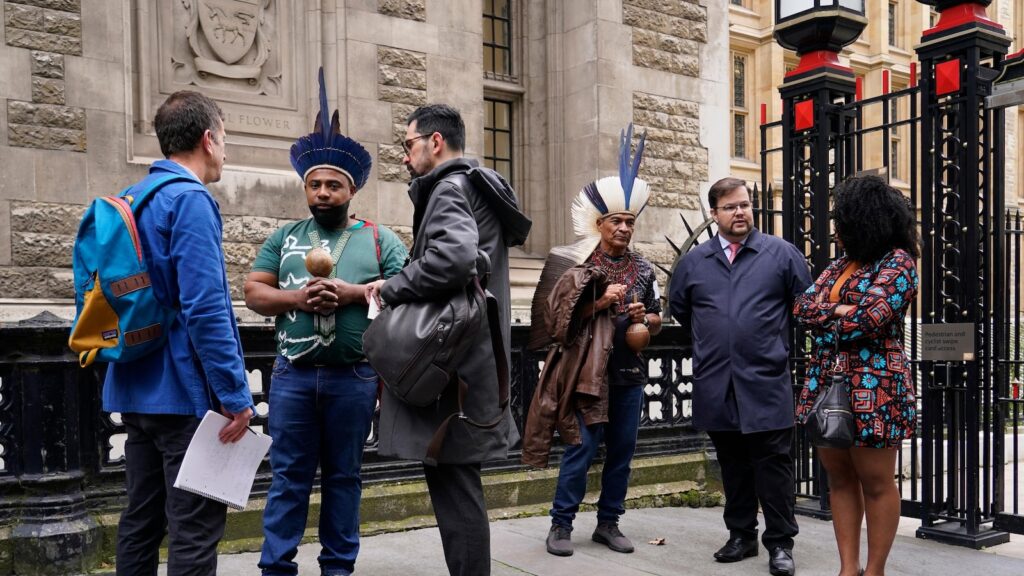[ad_1]
LONDON — Victims of Brazil’s worst environmental disaster were taking their case for compensation to a UK court on Monday, almost nine years after tons of toxic mining waste poured into a major waterway, killing 19 people and devastating local communities.
The class action lawsuit at the High Court in London seeks an estimated 36 billion pounds ($47 billion) in damages from the global mining giant BHP. That would make it the largest environmental payout ever, according to Pogust Goodhead, the law firm representing the plaintiffs.
BHP owns 50% of Samarco, the Brazilian company that operates the iron ore mine where a tailings dam ruptured on Nov. 5, 2015, releasing enough mine waste to fill 13,000 Olympic-size swimming pools into the Doce River in southeastern Brazil. The case was filed in Britain because one of BHP’s two main legal entities was based in London at the time.
The trial comes days after BHP announced that the company and its partner in Samarco, Vale SA, were negotiating a settlement with public authorities in Brazil that could provide $31.7 billion for people, communities and the environment damaged.
The potential settlement won’t have any impact on the London case, Pogust Goodhead said in a statement.
“Such timing only proves that the companies responsible for Brazil’s biggest environmental disaster are determined to do everything they can to prevent the victims from seeking justice, and are willing to perpetuate the shameful behavior they have demonstrated over the last nine years,” the firm said.
Melbourne, Australia-based BHP said the possible settlement would resolve a claim filed by Brazil’s Federal Public Prosecution Office and other claims by Brazilian public authorities.
“BHP will continue to defend the (UK) action, which it believes is unnecessary because it duplicates matters already covered by the ongoing reparation work and legal proceedings in Brazil,” BHP said Saturday.
The disaster destroyed two villages, killed 14 tons of freshwater fish and damaged 660 kilometers (410 miles) of the Doce River, according to a study by the University of Ulster.
The river, which the Krenak Indigenous people revere as a deity, was polluted so badly that it has yet to recover.
[ad_2]
Source link
